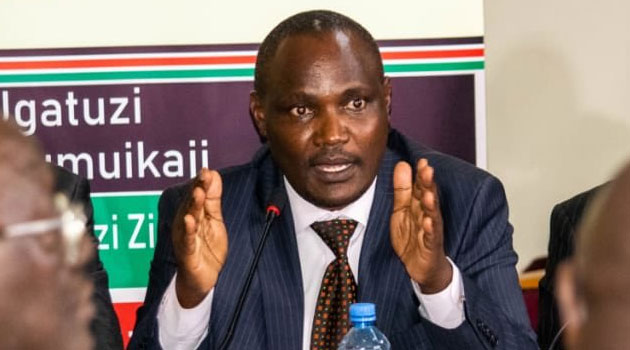
Mbadi criticises ‘unhealthy’ Raila succession debate at Bomas NGC » Capital News
NAIROBI, Kenya Apr 18 — Orange Democratic Movement (ODM) Chairperson John Mbadi has sustained his attacks on leaders jostling to succeed the Party Leader Raila Odinga terming the succession debate unhealthy.
Mbadi expressed that Odinga remains the party leader despite his ambitions to vie for the African Union Commission (AUC) Chairperson post.
Addressing the party’s National Governing Committee (NGC) meeting at Bomas of Kenya, the nominated MP warned the intense succession battle will ultimately split the party.
“Let us not entertain unhealthy debate we have our party leader Raila Odinga whether he succeeds for the AUC post or not, he is still our leader,” Mbadi insisted.
Odinga’s deputies Wycliffe Oparanya and Hassan Joho, both eyeing party premiership, joined the Party Leader at the NGC.
Mbadi asserted Odinga remains active and relevant in local politics despite his diplomatic bid urging those seeking to succeed the latter to tame their appetite.
“You have to convince us that you mean well and about your policies. It’s not just about telling us that you’re a party leader and we must accept to follow you,” Mbadi said.
A factional battle is ensuing between Oparanya and Joho who are seeking to put in place their allies in ODM leadership positions during the grassroots elections in a an attempt to boost their chances of succeeding Odinga.
The NGC meeting sets the stage for the adoption of key proposals by the National Executive Committee (NEC) ahead of phased grassroots elections slated to begin on April 27.
The grassroots elections will culminate in national elections marking the first attempt by the party to elect officials in a decade.
The last attempt in February 2014 ended in disarray after a coordinated attack by the infamous “men in black” at the Kasarani gymnasium.
The drama unfolded when men dressed in black suits overturned tables, smashed ballot boxes, and destroyed election materials, insisting that the polls could not proceed unless they were furnished with party registers.
